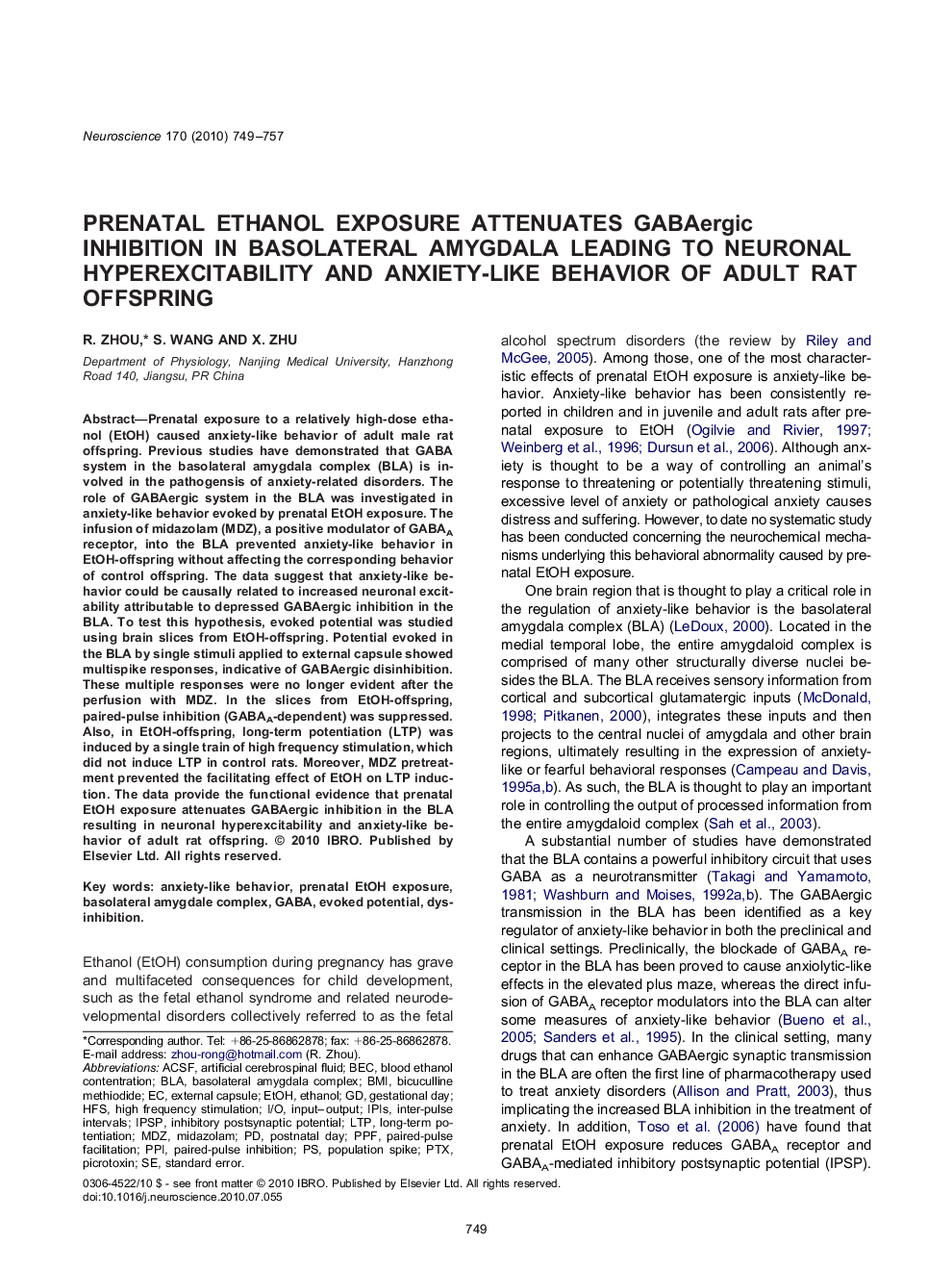| Article ID | Journal | Published Year | Pages | File Type |
|---|---|---|---|---|
| 6276803 | Neuroscience | 2010 | 9 Pages |
Abstract
Prenatal exposure to a relatively high-dose ethanol (EtOH) caused anxiety-like behavior of adult male rat offspring. Previous studies have demonstrated that GABA system in the basolateral amygdala complex (BLA) is involved in the pathogensis of anxiety-related disorders. The role of GABAergic system in the BLA was investigated in anxiety-like behavior evoked by prenatal EtOH exposure. The infusion of midazolam (MDZ), a positive modulator of GABAA receptor, into the BLA prevented anxiety-like behavior in EtOH-offspring without affecting the corresponding behavior of control offspring. The data suggest that anxiety-like behavior could be causally related to increased neuronal excitability attributable to depressed GABAergic inhibition in the BLA. To test this hypothesis, evoked potential was studied using brain slices from EtOH-offspring. Potential evoked in the BLA by single stimuli applied to external capsule showed multispike responses, indicative of GABAergic disinhibition. These multiple responses were no longer evident after the perfusion with MDZ. In the slices from EtOH-offspring, paired-pulse inhibition (GABAA-dependent) was suppressed. Also, in EtOH-offspring, long-term potentiation (LTP) was induced by a single train of high frequency stimulation, which did not induce LTP in control rats. Moreover, MDZ pretreatment prevented the facilitating effect of EtOH on LTP induction. The data provide the functional evidence that prenatal EtOH exposure attenuates GABAergic inhibition in the BLA resulting in neuronal hyperexcitability and anxiety-like behavior of adult rat offspring.
Keywords
MDZPPFBECEtOHBLAbasolateral amygdala complexPPIIPSPaCSFPTXHFSI/OEthanolPopulation spikeevoked potentialhigh frequency stimulationpaired-pulse facilitationlong-term potentiationLTPstandard errorAnxiety-like behaviorgestational daypostnatal dayBMIartificial cerebrospinal fluidbicuculline methiodidePaired-pulse inhibitionMidazolaminput–outputinhibitory postsynaptic potentialPicrotoxinexternal capsuleGABA
Related Topics
Life Sciences
Neuroscience
Neuroscience (General)
Authors
R. Zhou, S. Wang, X. Zhu,
